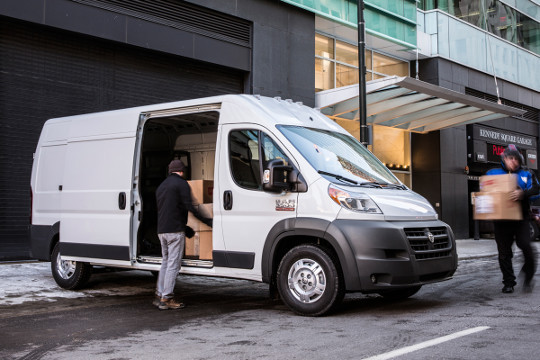As a business owner, there are numerous responsibilities that keep arising and it could get overwhelming when there's no clear guidance especially for new entrepreneurs. One of the aspects that cannot be overlooked for businesses is commercial auto insurance; an insurance that allows business owners to get commercial vehicle coverage for a single vehicle or a fleet of vehicles.
In order to avoid incurring unnecessary liabilities for your business vehicles, it's important to secure them in advance. This specifically applies to vehicles used for business purposes or those that have been registered as a commercial vehicle; not also forgetting vehicles used by employees, whether for deliveries or running errands on behalf of the business.
In the event of an incident, such as a damage or accident a business owner can claim and receive compensation that will help cover the cost of repairs.
Well, with anything business, risks are a constant. Concerning this form of insurance, it's important to be knowledgeable about certain requirements and expectations, to prevent any form of So here's what you need to know to avoid paying out the cash you intend to keep or losing money in the process.
1.Get Insured the right way:
The right coverage for your vehicle can be quite tricky because there are several sides of an insurance to cover. It's very important to pay attention to insurance needs for different classes of vehicles and also clearly defined requirements for each state.
For example, getting a Pennsylvania truck insurance, has several truck insurance iterations designed to protect the owner from some losses that may occur. This insurance coverage includes liability insurance, physical damage coverage, cargo coverage or uninsured/underinsured motorist coverage. In such cases, be sure to buy your policy from a company that specializes in truck insurance as they understand the intricacies better and can give the best advice on what to purchase.
The type of insurance also depends on factors like age of driver, gender, whether your truck travels inter state, truck weight, commodity transported, just to mention a few.
2.Debunk the Myths, get facts:
Never assume, research instead and find out the different types of insurance you need; knowledge will save you money in damages and downtime. For instance, your motor carrier policy won't cover you when you drive your truck on a personal errand. Be sure to purchase a non-trucking liability and physical damage coverage in this eventuality.
You also don't need to purchase a separate cargo insurance policy. You can have one policy and pay one bill if you include your cargo insurance as an endorsement on your vehicle policy. You also save time and energy by dealing with one company instead of two if an accident damages your truck and cargo.
3.Be wary of low price policies:
If it's too good to be true, it probably is. Often times low price means you are getting less coverage disguised in technical jargons a layman can't decipher. When comparing policy prices from different companies be sure to also study the extent of coverage and terms and conditions. You should be concerned if a company offers a relatively lower price compared to its contemporaries.
Don't be afraid to conduct background checks on insurance companies in simple ways like experience and specialization in truck insurance, financial strength especially sufficient reserves for payment of claims, extent of coverage, are their policies rigid or flexible enough to be adapted to your need, cost of basic and additional coverage like an endorsement, total value of their policies in terms of time, money and ease of execution.
4.Screen and Train your Drivers: If you intend to hire a driver, ensure they go through an effective screening process. One way is to get their motor vehicle record and set up a scoring system that helps evaluate their driving records. If they score below a certain minimum point, don't hire them. If they pass this stage, do a drug testing before you eventually hire.
Train them on actions to take if there's ever an accident and put a card with a checklist of these actions in your truck as a guide and reminder. The most important item on the card should be a number to call should an accident occur.
5.Record Evidence: In the event of an accident, visual documentation will help defend your claim. Take pictures of the scene immediately after the accident. You can also have cameras and driver cams installed in your truck. The camera shows what the driver sees and monitors the behaviour of other drivers like whether they were texting, eating or taking a selfie while driving. An in-vehicle camera which showing the view of your driver will also monitor their behaviour as they drive your truck.
An insurance policy is meant to protect you and buy you 'peace of mind' but only if done rightly. Resist the temptation to try to cut cost, it might be more expensive on the long run. If you are driving your truck yourself for instance, you can not self insure, you must buy an insurance policy. Let insurance companies do their jobs - cover you whenever you need it.


